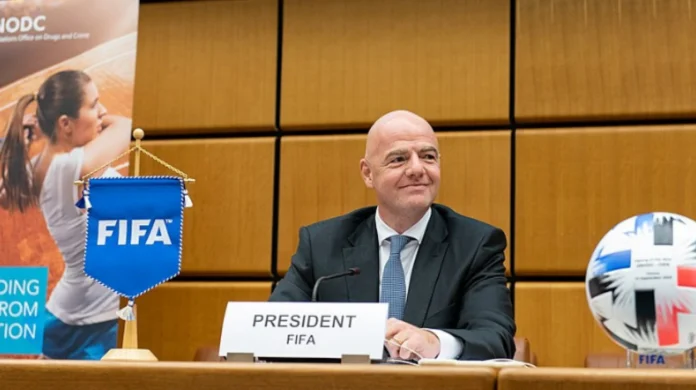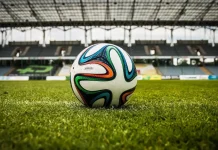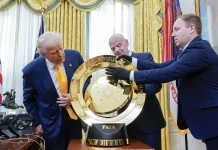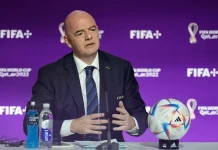Alarmingly, discrimination in football is incredibly prevalent despite years of campaigns across the world and even individual commitments. The largest number of cases of abuse was recorded in 2024-25 with over 1,398 cases. The most common is racial discrimination which reports about 60 percent. These include verbal abuse, discriminatory chants, and player, coach, and official harassment via the internet.
There has also been a considerable rise in gender and gender based identity abuse, and women and transgender sportspeople have become particularly vulnerable to such attacks via social media. This tendency underlines the presence of a strong prejudice within football, as well as the inadequacy of the current structures to react in response.
Grassroots football reflects deeper systemic issues
Almost half of the reports on abuse were under-18. Youths are being subjected to racial insults and isolating behavior at a young age that should have taught them core principles of equality and acceptance. Such naturalization of hate at such a young age shows that FIFAs anti-discrimination messages have not reached those institutions that were developing new generations of players and fans.
FIFA’s campaigns fail to match on-the-ground reality
Banners and video and acts of solidarity before games have been supported by major tournaments in support of their anti-discrimination efforts such as FIFA and No Discrimination and No Racism. But at some event, like FIFA Club World Cup, which will be hosted there in 2025, this message seemed conspicuously missing or diluted, and was targeted by advocacy groups.
Visual criticism of anti-racism messages suggests that it is no longer a priority, particularly when weighed against the commercialization of branding. This disgraceful motivation begs the question of FIFA taking its social responsibility of convenience too lightly in business.
Sanctions remain too weak to be effective
Episodes of racial mistreatment at high-profile games in top leagues like Serie A or Copa Libertadores have usually led to few penalties, fines, being shunned one game, or other empty threats. These can hardly prevent repeat offenses, particularly in set fan organizations and in collusive clubs.
The lack of punitive measures such as losing points or being banned from tournaments kills any implication of a zero-tolerance strategy. Rather, the cost of discrimination is lower than the cost of discipline to the offenders.
Political interests obstruct consistent enforcement
FIFA has a decentralized form of government that places much power in the hands of regional confederations, like UEFA and CONMEBOL. These institutions engage in disciplinary measures and are typically placed under domestic political and economic stress. The result is an unequal use of anti-discrimination laws depending on place and authority.
This dependency on regional partners compromises FIFA to implement its own policies on a similar level. Some have been so cautious of causing political embarrassment to federations that are politically sensitive that it has escaped full examination altogether, with the charge of selective application and double standards.
Commercial considerations influence disciplinary outcomes
FIFA has found itself torn between the necessity of seeking sponsors and diplomatic niceties on behalf of the member countries, and the necessity of anti-discrimination action against the member countries. Sanctions are either light or put off when national associations or player markets are commercially important.
Such a connection damages the faith people have in FIFA as a governing body and suggests that monetary interests can triumph the moral in every instance. Favouritism also leads those in authority to advance any discriminatory practices to the level where non-discrimination is construed to be implied consent.
Online abuse outpaces FIFA’s protective measures
FIFA introduced a Social Media Protection Service in 2025 that uses AI to monitor online areas, labeling abusive content and helping players victimized by this type of online abuse. Despite the initiative, the number of reports of digital racism and harassment has continued to increase, especially during the run up to international fixtures.
Players have criticized the service as being reactive, rather than proactive. There are reports of failure to be informed of actions taken following abuse, with some also noting that they only learned to use the service after being subjected to serious online harassment. It lacks efficiency because it is not transparent, slow to respond and coverage of different languages is very poor.
Digital platforms as unchecked spaces
Due to the popularity of football around the world, millions of fans interact every day on social media. However, these are also one of the most unregulated areas of hate speech in the sport. As long as FIFA does not officially collaborate with them and as long as they are not pressed harder, the hosting companies of this abuse cannot go unpunished.
It is this non-implementation that contributes towards the disconnection between professed FIFA positions and the realities experienced by the players who are compelled to endure unstopped harassment.
Institutional accountability demands structural reform
FIFA made some domestic changes in recent years: better protections of whistleblowers, new definitions of discriminatory behaviour and increased power of investigators. Nonetheless, these are not imposed by external controls or independent monitoring measures.
Specialists and pressure groups believe that it is necessary to have an independent and permanent anti-discrimination body. This body would be free to investigate and take action without FIFA balancing its politics or commercial interests.
Transparency as a critical missing element
And victims and advocates often lack knowledge about the mechanism of handling the cases, what sanctions are to be imposed and whether the perpetrators are repeat offenders. This kind of opaceness causes the victims not to turn out causing mistrust of the system.
Open-ended roughly planned schedules, the discussion of case results, free conversation with the players would be typical of a more natural institutional change.
The sport’s integrity is at stake
The lack of consistency in dealing with discrimination derails the credibility of football as a cohesive worldwide power. When racism or sexism is permitted or dealt with lightly in front of fans, it undermines the belief in the goodness and justice the sport is meant to possess.
Inaction can result in a reputational risk to sponsors and broadcasters, who are becoming increasingly conscious of this risk. Already, brands have been mounting pressure on national federations to act more sternly, and some have pulled their support due to acts of discrimination. The retention of FIFA as an appealing organization around the world is directly linked to the ethical soundness it shows in social matters.
Will FIFA turn rhetoric into responsibility?
The fact that the discrimination was present in the youth areas, the field stadiums and the web servers proves that symbolic actions are not suitable and that there is no correct distribution. FIFA is not unaware but has no political intention to enforce its standards in all places and in situations where it would be a threatening factor to business or diplomatic relations.
The 2026 world cup is a make-or-buy moment. The tournament will take place under the close attention of the international community hosted by the United States, Canada and Mexico. Associations and sponsors at the national level, as well as fans, will be observing whether FIFA is finally able to put its own words into sustained, fair and visible action.













